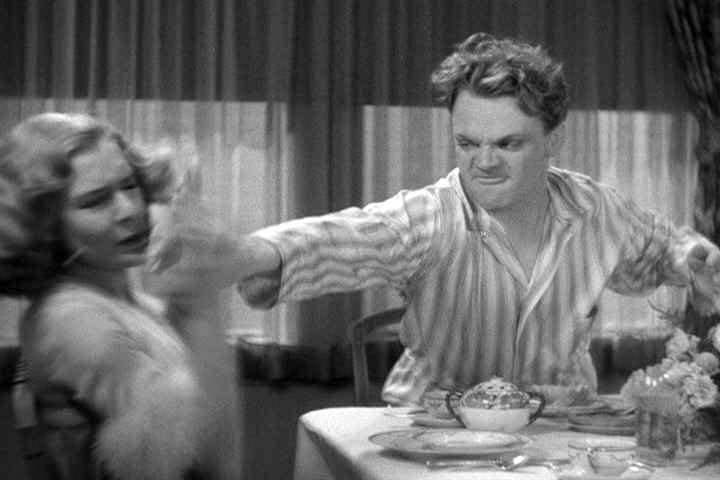An Uncomfortable Song & Dance
I’m a big fan of older films, including musicals, and, like many buffs, I’ve found myself in the “no one likes to watch black & white movies, and that goes double for musicals” discussion.
While I do agree that a large portion of the viewing population is lost to the simple visual issue of aesthetics, I think many of my fellow enthusiasts downplay the fact that a lot of old film content is simply unpleasant. The glossing of the silver screen has lead me to notice some uncomfortable naïveté. For example, were you aware that in 2007 the MPAA, who gives the motion pictures their ratings, decided that excessive smoking can lead to a film being rated R? It’s apparently why Sigourney Weaver’s character begins Avatar as an intense smoker, then, midway through – post-MPAA announcement – she suddenly drops off.
For example, were you aware that in 2007 the MPAA, who gives the motion pictures their ratings, decided that excessive smoking can lead to a film being rated R? It’s apparently why Sigourney Weaver’s character begins Avatar as an intense smoker, then, midway through – post-MPAA announcement – she suddenly drops off.
I know from living with two recovering nicotine addicts that my personal safety is always improved by avoiding films with copious amounts of puffing, which excludes a lot of pre-’50s pieces.
 While it’s never been especially all right to go around pummeling ladies, I’ve certainly had a few moments of “whoa” while watching older films. There’s a scene in The Philadelphia Story where Cary Grant covers Katherine Hepburn’s face with his palm and throws her to the floor – it’s played for comedy, and I think it works as such, but the first time I saw it I had to rewind to be sure that my eyes had just taken in what my brain was telling me they’d seen.
While it’s never been especially all right to go around pummeling ladies, I’ve certainly had a few moments of “whoa” while watching older films. There’s a scene in The Philadelphia Story where Cary Grant covers Katherine Hepburn’s face with his palm and throws her to the floor – it’s played for comedy, and I think it works as such, but the first time I saw it I had to rewind to be sure that my eyes had just taken in what my brain was telling me they’d seen.
It’s not that every third film had a wife-beater, but there was certainly a lot less room for an actress to be anything other than a saint or a hussy, and the use of ladies as MacGuffins to demonstrate villainous brutality can really grate on today’s viewers.
 The worst offender, however – and this goes double for musicals – is casual racism.
The worst offender, however – and this goes double for musicals – is casual racism.
 It’s horrible enough to have a film with a groveling, illiterate black-servant character played for comedy, but there’s a period in musicals in which you can not avoid a well-known actor showing up, under a cake of makeup, to make the modern audience uncomfortable. The picture above is Fred Astaire, in blackface, for the movie Swing Time, which is otherwise a nice little dance & song flick, and the picture on left is Dorothy herself, Judy Garland, from Everybody Sing.
It’s horrible enough to have a film with a groveling, illiterate black-servant character played for comedy, but there’s a period in musicals in which you can not avoid a well-known actor showing up, under a cake of makeup, to make the modern audience uncomfortable. The picture above is Fred Astaire, in blackface, for the movie Swing Time, which is otherwise a nice little dance & song flick, and the picture on left is Dorothy herself, Judy Garland, from Everybody Sing.
Toto, we’re not in the deep south anymore:
[youtube=http://www.youtube.com/watch?v=J7Y2Ll24GRU]
– and let’s not even discuss how much blackface Bing Crosby did.

The usual reaction is to say these problems are “of their time”, as if that gives them some pass – personally, I don’t mind glaring menacingly at the bad so that I might enjoy the good, but I also understand that people who don’t have the stomach for it are also “of their time.”
While I am in no way defending the makeup, not all of that is blatant racism. A small segment was actually bringing forward a form of “Negro music” in the only mainstream way possible. Jazz was still far from being “respectable” and some of the acts were more celebratory than insulting.
That said, most of it was cringeworthy, watermelon-eating caricatures. Check out It Came From Hollywood for some jaw dropping examples.
Yeah, understood – I don’t think Astaire is meaning to be offensive, as an example, but it can still be tough to watch.
I’ll definitely check out It Came From Hollywood.